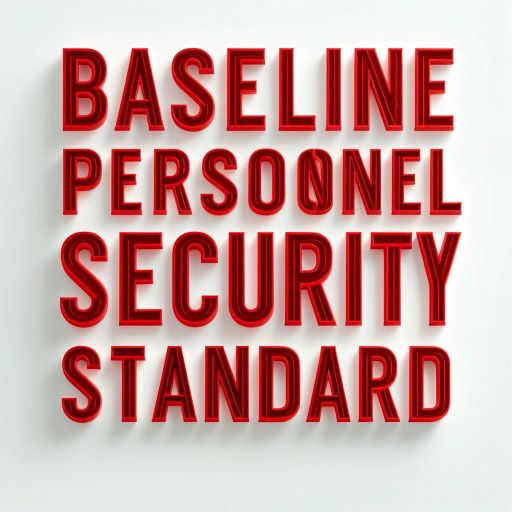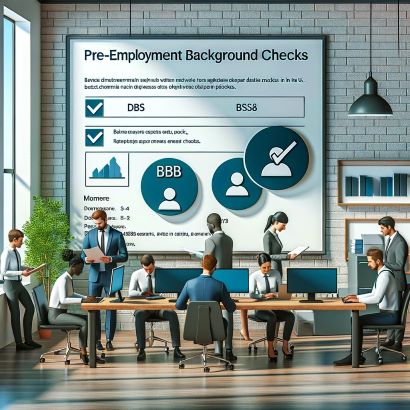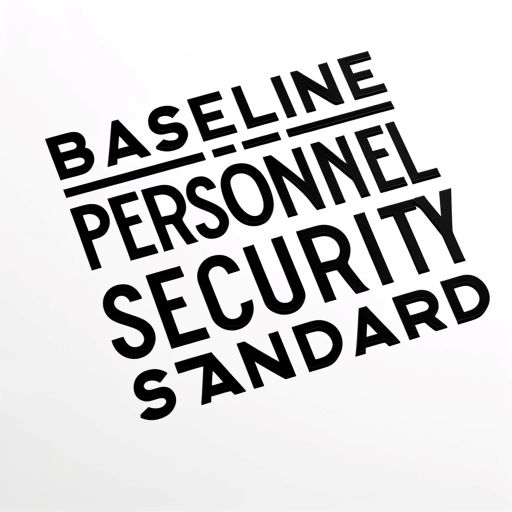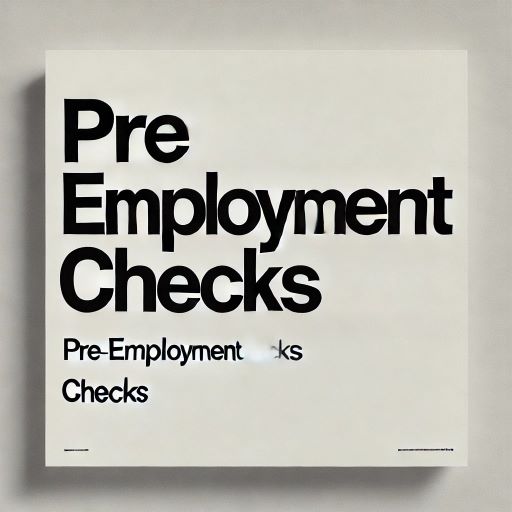

Guaranteeing the accuracy of right to work status and conducting international criminal record checks can also be challenging aspects of the BPSS process. speed up your recruitment process using bpss clearance services that are fast , accurate and affordable. Employers must ensure that their BPSS processes comply with the Equality Act 2010, avoiding any form of discrimination based on protected characteristics during the vetting process. The thoroughness of BPSS clearance helps prevent any potential security breaches that could arise from incomplete background checks.
Their roles potentially expose them to sensitive information that could affect the country's governance and international standing. For individuals seeking BPSS clearance, organizations may conduct additional inquiries to explore further into various aspects of their background and history.
These checks typically include Basic DBS Check, ID Check, Right to Work check, and 3-Year Employment History Check. Additionally, when applying for BPSS clearance, it's crucial to have your P45 and P60 forms available as they're key documents that prove your employment history.
The aim is to confirm the candidate's work history and to identify any inconsistencies that might suggest security risks. Employers in these sectors may request BPSS checks to ensure that their potential or current employees meet the necessary security standards to protect against risks such as espionage, terrorism, or sabotage.
Another key distinction is in ongoing monitoring and renewal requirements. Additionally, be prepared to submit detailed employment history records like payslips and tax documents to validate at least three years of work experience. This is generally quicker than more detailed checks, such as those performed for higher levels of security clearance, but can still be delayed if there are issues with the national criminal records database or if the individual has spent significant time overseas.
Key components of BPSS clearance encompass verifying the right to work, conducting identity checks, checking criminal records, and confirming employment history. BPSS checks are designed to serve as a preliminary screening for individuals seeking to work in sensitive or secure environments, particularly within the government or its contractors.
For roles where exposure to SECRET and TOP SECRET information is possible, BPSS clearance becomes even more significant in safeguarding classified data. Ensuring transparency in disclosing your overseas experiences is crucial for upholding the effectiveness and integrity of the BPSS clearance process.- Accurate disclosure of all locations visited during these periods is necessary.- Providing reasons for extended stays abroad can help clarify your activities during that time.- Any connections or affiliations established overseas should be clearly communicated.- Highlight any security-sensitive activities or exposures encountered while abroad.
A key component of the BPSS check is the verification of documents, which can be time-consuming. BPSS clearance is usually valid for 3 years from the date of issue.2.
Discover what BPSS clearance is and why it's essential in the UK.

Posted by Jasmine Roberts on 2023-07-23
Expert tips on passing BPSS clearance without delays.

Posted by Jasmine Roberts on 2023-05-27
Compare BPSS and SC security clearances in the UK.

Posted by Jasmine Roberts on 2023-05-27
Understand the legal foundation of BPSS checks.

Posted by Jasmine Roberts on 2023-02-02
While BPSS checks aren't formal security clearances, they're vital for accessing UK OFFICIAL and occasional UK SECRET assets. When distinguishing between BPSS and DBS checks, it's vital to recognize that BPSS focuses on national security vetting, identity verification, and right to work status, while DBS solely examines an individual's criminal record. This step is essential to ensure that individuals are legally entitled to work in the country, which is fundamental both for complying with legal requirements and for maintaining the integrity and security standards within an organization, particularly those involved in government or sensitive roles. Security training
The BPSS checks must be applied uniformly to all employees who are in similar roles, ensuring that no individual is unfairly targeted or excluded from a position based solely on personal attributes that do not pertain to their ability to perform job-related tasks safely and effectively. BPSS checks involve several key components: identity verification, employment history check, criminal record check, and nationality and immigration status check.
Baseline Personnel Security Standard (BPSS) checks and BS7858:2019 checks are both integral to pre-employment vetting in the UK, but they serve different purposes and are structured to meet the needs of different sectors. In summary, undergoing a BPSS check is essential for individuals seeking roles with access to sensitive information and government assets.
Ensuring that all employees have been thoroughly checked and are legally allowed to work helps maintain the security standards necessary for sensitive roles, particularly in government and defense. BPSS checks are generally quicker to complete, often within a few weeks, reflecting their role as a baseline security measure.

For positions within the UK government and its contractors, BPSS clearance is not just a formal requirement but a critical security measure. Digital technology has significantly streamlined the Baseline Personnel Security Standard (BPSS) process by enabling faster gathering and verification of applicant information. By verifying your identity, legal right to work status, and employment history accuracy, organizations can establish a secure work environment and prevent unauthorized access to data.
Delays often occur during manual verification processes, impacting the overall clearance timeline. Keep in mind that additional checks like international criminal record screenings might come with extra fees.
Ensuring that individuals have BPSS clearance helps maintain national security and reduces the risk of insider threats. By organizing and presenting these essential documents accurately, you can expedite the verification process and demonstrate your suitability for accessing UK OFFICIAL assets.

To get an accurate cost estimate, it's advisable to request a quote from a trustworthy screening provider. By screening candidates before employment, organizations mitigate risks associated with unauthorized access to sensitive information, corruption, and potential threats to public safety. Both types of checks are crucial, yet they serve different and complementary purposes within the spectrum of employment background screenings in the UK.
The use of digital platforms increases the risk of data breaches if not properly secured. Additionally, government contracts frequently require BPSS checks as a preventive measure to enhance security measures.
AI and machine learning are increasingly being integrated into the BPSS process, enabling predictive analytics to assess risks associated with certain profiles or patterns. As organizations grow and need to process larger volumes of security clearances, digital systems can be scaled to accommodate increased demand without a proportional increase in resources or degradation in the speed of processing.
BPSS is suitable for general employment in government-related roles requiring a basic level of security assurance. Unlike BPSS checks, DBS checks are required for positions involving contact with vulnerable groups, such as in teaching, healthcare, and social services.


Unlike some checks such as the Disclosure and Barring Service (DBS), which may concentrate more on criminal history, BPSS covers a broader spectrum of aspects essential for certain roles requiring access to sensitive information. Renewal involves re-verifying right to work, identity, criminal records, and employment history. The primary purpose of BPSS checks is to establish a reliable baseline of security clearance for individuals to ensure they meet specific standards of trustworthiness, integrity, and reliability.
BPSS checks usually involve a basic disclosure, revealing only unspent convictions under the Rehabilitation of Offenders Act 1974. This step is crucial in building a comprehensive profile of the candidate's past professional conduct.
In contrast, DBS checks might need to be renewed more frequently, especially for positions involving regular contact with vulnerable groups. The verification of essential documents plays a pivotal role in the recruitment process requirements for obtaining BPSS clearance.
What Is the Difference Between Bpss and Dbs? Vetting agencies Right to Work Confirmation: Legal documentation proving the right to work in the UK, such as a passport or Home Office document, is required.
During the BPSS clearance process, individuals must accurately disclose any periods of 6 months or more spent outside the UK in the last 3 years. Additionally, documentation related to career gaps, redundancy, or periods of unemployment may be requested to ensure a thorough review of the individual's background. BPSS clearance is often a prerequisite for obtaining higher levels of security clearance, such as Security Check (SC) or Developed Vetting (DV).
Lastly, employers conducting BPSS checks must have clear policies in place for handling sensitive information and addressing any security concerns that may arise. Individuals needing access to UK OFFICIAL assets and occasional access to UK SECRET assets must undergo BPSS screening to uphold trustworthiness, honesty, and integrity in their roles.
Several factors can influence the duration of a BPSS check. The application of digital tools in the BPSS process also brings about challenges, particularly concerning data protection and privacy.
As part of BPSS clearance, a basic criminal record check is conducted. It's imperative to make sure that the identification documents you provide are original, unexpired, and legitimate. Employee confidentiality

Employers conducting BPSS screening must comply with UK data protection laws. Personal data is stored securely and used only for vetting purposes.
Government roles require BPSS Clearance to ensure that employees handling sensitive information are trustworthy, legally authorized to work, and free of disqualifying criminal histories.
Employers rely on BPSS Clearance results to make informed hiring decisions for sensitive roles. It helps ensure candidates meet security standards required for the job.
Delays in BPSS Clearance can occur due to incomplete applications, missing documents, or extended reference checks. Applicants should ensure all information is accurate and complete.
The cost of BPSS Clearance is typically covered by the employer. However, in some cases, applicants may need to pay for certain document-related fees, such as background check certificates.